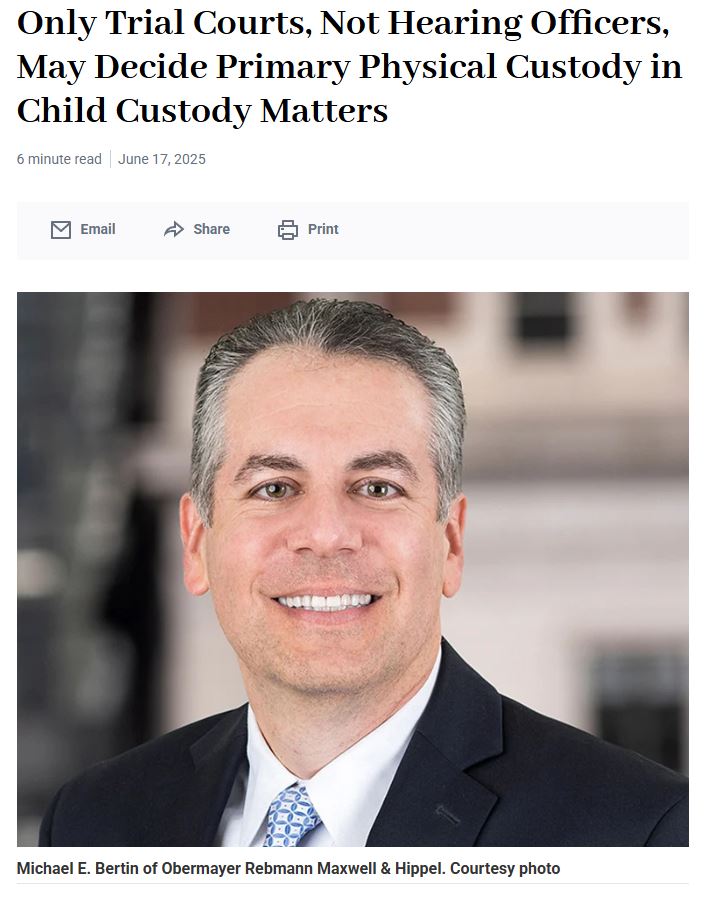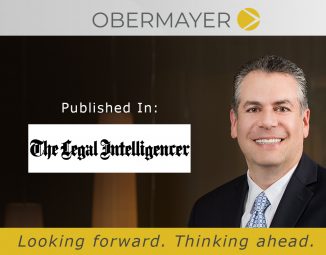Michael Bertin Examines Custody Case Limits
In his June 17, 2025, article for The Legal Intelligencer titled “Only Trial Courts, Not Hearing Officers, May Decide Primary Physical Custody in Child Custody Matters,” Michael Bertin, partner and co-chair of the family law group, analyzes the recent case of McGee v. McDowell, 333 A.3d 383 (Pa. Super. 2025), involving the use alternative procedures to handle child custody cases.
Limitations on alternative hearing procedures
According to the Pennsylvania Rules of Civil Procedure and the Pennsylvania Supreme Court, there are limitations on alternate hearing procedures for child custody cases. In particular, Rules 1915.4-1, 1920.51(a)(2)(ii), as well as case law provide that a hearing officer may hear an action for partial physical custody. Primary physical custody cases must be decided by a trial court judge.
According to Rule 1915.4-3, a conference officer may hold an initial nonrecord proceeding in an attempt to assist the parties in reaching an agreement, but if an agreement is not reached, the matter shall be listed for trial before a judge de novo.
McGee v. McDowell
In McGee v. McDowell, the Superior Court ruled that the trial court made a legal error by allowing a hearing officer to decide a case involving primary custody, even though both parties agreed to it. The hearing officer granted the mother primary custody, and the trial court adopted the recommendation without a proper review or hearing on the father’s objections. The Superior Court vacated the McGee court’s order and remanded the matter to the trial court for the parties to continue to litigate before the trial court and have the trial court address the statutory custody factors.
This case is an important reminder primarily to the counties in the commonwealth regarding procedures pertaining to partial physical custody requests and primary physical custody requests.
Read the full article here.





